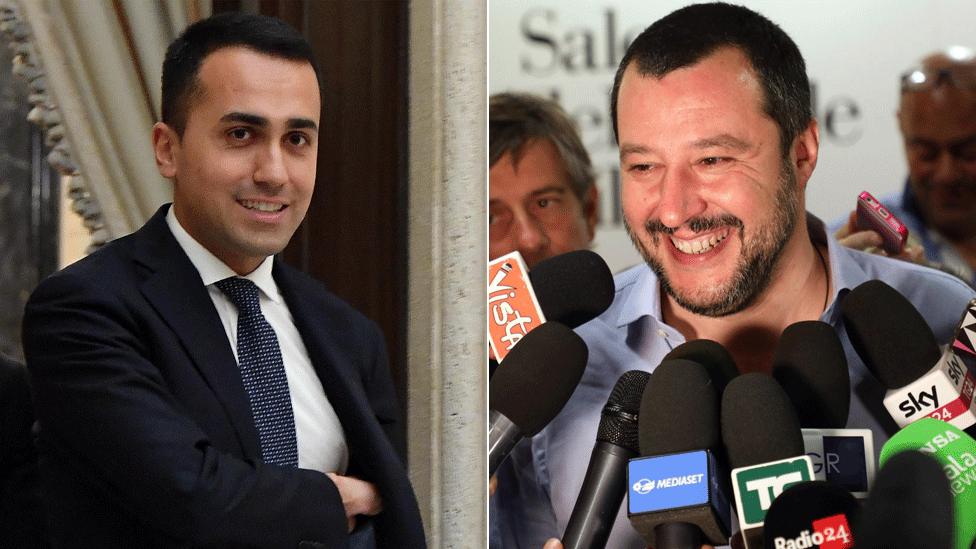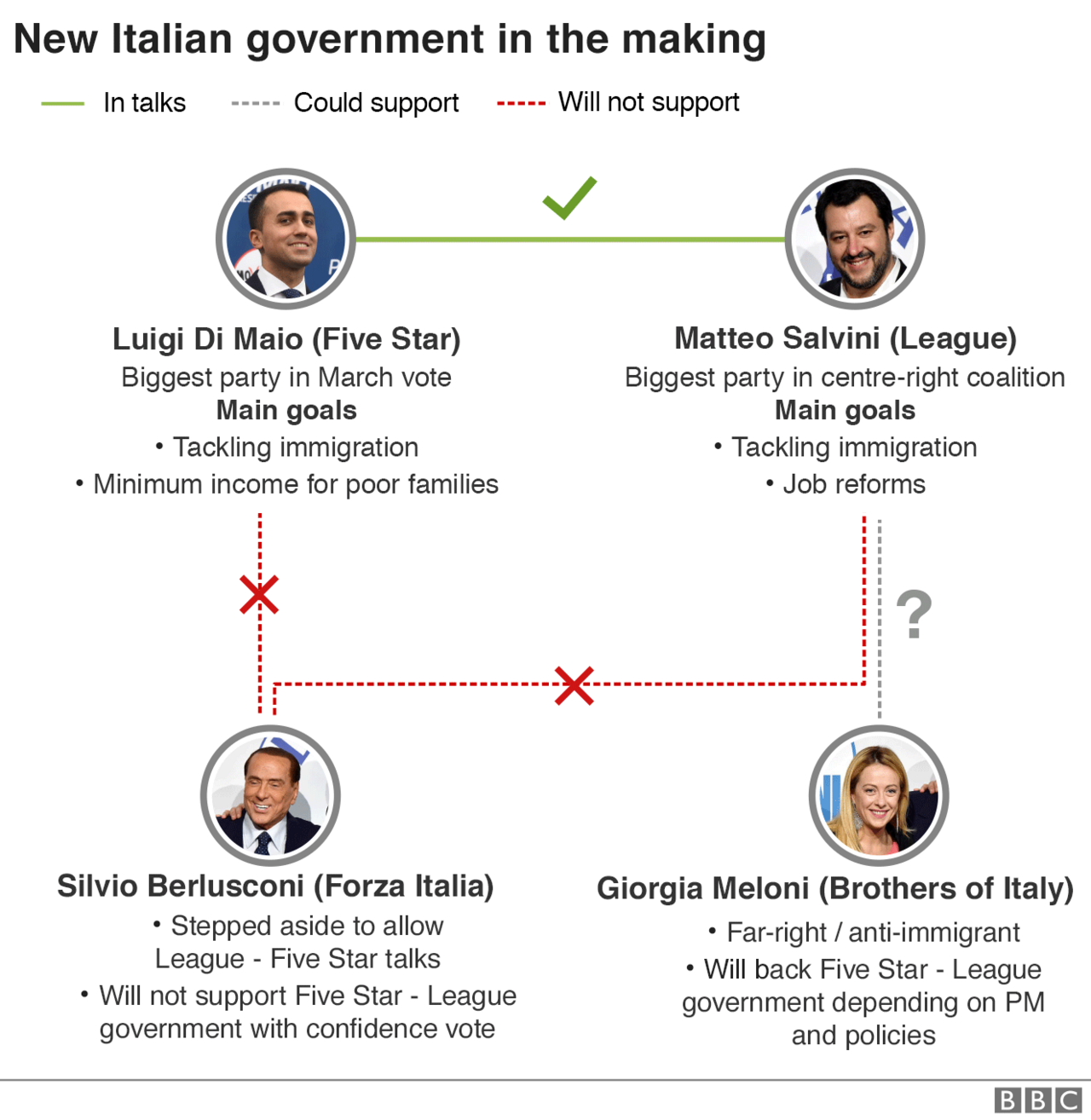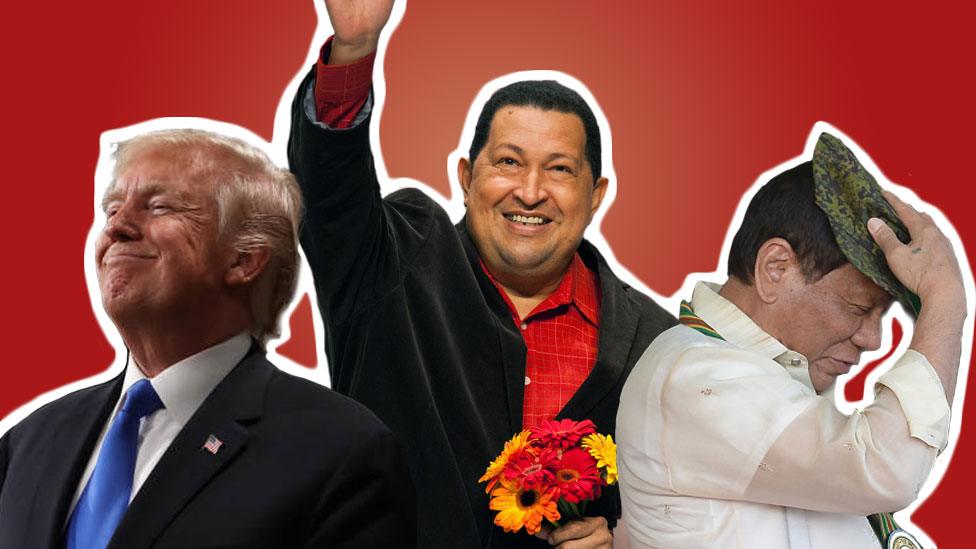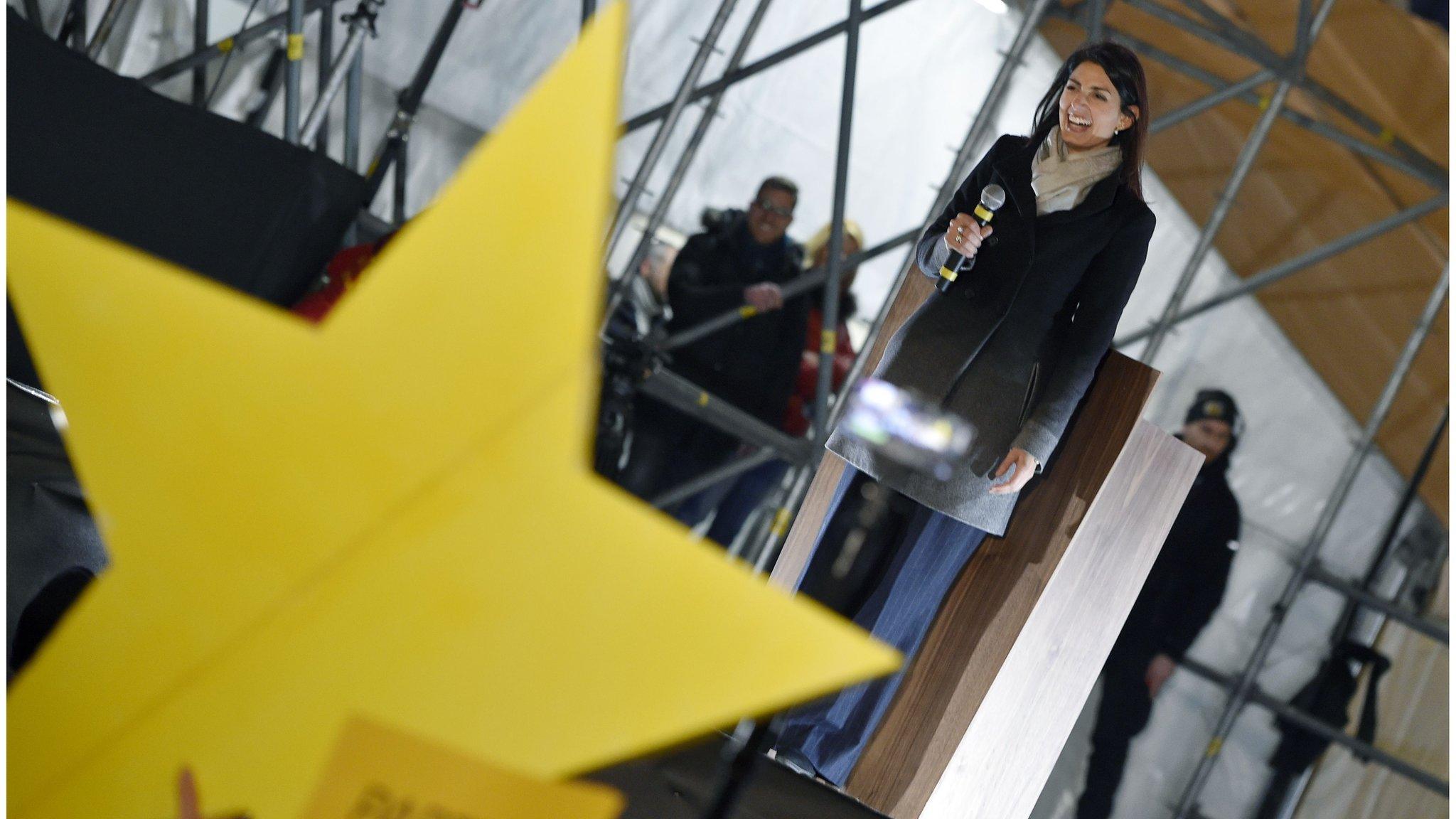Five Star and League: Italy populist leaders close to government deal
- Published

The Five Star Movement of Luigi di Maio (L) emerged as the biggest single party in the March vote while Matteo Salvini's League has led a centre-right coalition
Italy's anti-establishment Five Star Movement and right-wing League party say they have made significant steps to forming a government, more than two months after a general election.
Luigi Di Maio of Five Star and Matteo Salvini of The League have been given until Sunday to solve their differences.
The prospect of a populist, Eurosceptic government has worried investors.
But a deal would end political deadlock and the threat of another vote.
The two leaders said in a joint statement they were aiming to "provide a response and a political government for the country as soon as possible". They have given no indication who would lead the government or what their policies will be.
Mr Di Maio wrote on Facebook: "I cannot hide my joy and happiness that we can finally start solving Italy's problems".
Once a programme is agreed, Five Star members are expected to have an online vote on it, in line with the movement's belief in direct democracy.
President Sergio Mattarella, who had earlier given the parties until Thursday afternoon to reach a partnership deal, agreed to extend the deadline. But in a speech he appeared to warn them not to build a government that confronted the European Union and the euro.
It would be a mistake, he warned, "to look to 19th-Century solutions when trying to solve the problems of the 21st Century".
Italy's main FTMIB share index fell by more than 1% and government bond yields hit a seven-week high as the prospects of a populist coalition grew.
What would a populist government mean for EU?
By James Reynolds, BBC Rome correspondent
In many ways, a Five Star-League coalition is a natural choice. Each party campaigned in the March general election as a populist, anti-system movement, wary of Italy's current relationship with the rest of the European Union.
Five Star picked up votes by promising income support for the country's poor. The League wants to impose a 15% flat tax which would benefit companies.
In order to fund these promises, the parties have each called for a renegotiation of the EU's strict fiscal rules.
We don't yet know if the two parties, in coalition, will want to go further.
Five Star has stepped back from an earlier promise to hold a referendum on the country's membership of the single currency.
The League, which once promised to withdraw from the EU entirely, currently says it wants to reform the union from within.
Why is Berlusconi important?
Five Star has been open to taking part in a government with the nationalist League for some time, but always refused to work with Matteo Salvini's centre-right coalition ally, ex-Prime Minister Silvio Berlusconi. The centre-right coalition won the 4 March election without sufficient support for a majority, while Five Star was the biggest single party.
The 81-year-old billionaire is considered corrupt by Five Star, and he has said the anti-establishment movement does "not have the political maturity" for government.
Until President Mattarella abandoned attempts at forming a government earlier this week, threatening a "neutral" government run by technocrats, Mr Salvini had said he would not abandon Mr Berlusconi.

Eventually, on Wednesday night, the former prime minister agreed not to stand in the way of a Five Star coalition with The League.
However, he insisted his Forza Italia party would not back a confidence motion if they present a new government to parliament. They would not need his support as the two parties between them command over half the vote.
- Published6 March 2018

- Published5 March 2018
